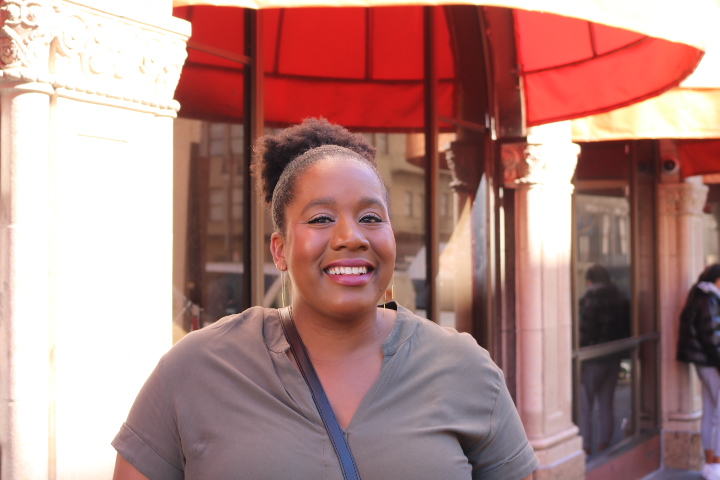GLIDE Voices is honoring Black History Month; we asked Renesha Westerfield, Project Manager and Executive Assistant, what does Black History Month mean for you?

“I often joke that during Black History Month, I tend to slow down a little bit. I get a little bit of Senioritis, if you will. I always feel like the ancestors would want me to do less during a time like this to recognize that there’s more to me than to produce. That we’ve done enough, we can hang up our hats and take a break. I try to reflect on all the contributions that my people have made to this country, and it feels restorative in that way.
I think to be Black in America means to be in mourning and in celebration at the same time, because the people have overcome so much, and there’s so much to celebrate every day. But there’s a lot to mourn because it’s very heavy to be Black in America, it is very scary sometimes. I think that duality weighs on us in different ways. It’s a rollercoaster of emotions, but we’re able to hold space for all the pain and the death, and then turn around and smile and have something to appreciate and celebrate. I couldn’t imagine being anyone else, and I’m thankful for that community.
Growing up, I had a lot of family members who’ve been on and off drugs, in and out of jail, and I personally have survived foster care. I know what the carceral state has done to me, the time that I’ll never get back, the ways my family hasn’t been able to get back on their feet.
The cycle of poverty I’ve experienced just by being Black, and the constant threat of being a Black woman today – like walking on the street, being outside with my son, going in and out of stores. How am I going to be received? What are people going to say? Is this going to be a moment where I’m driving, doing something very innocuous, I get pulled over and that’s it? I hope that I can give my son a little bit more, that he won’t face the same thing. But there are truly no guarantees. I can go out with just prayers and hope and do as all Black mothers have done before.
The most radical thing a Black person can do in this country is choosing to find joy and happiness, because that’s the biggest threat, our joy, and that’s what’s under constant attack from appropriation to the invisible glass ceiling for Black folk, to whatever ways they try to cut us off from making money and taking care of ourselves. We still find joy with very little, and we make it look damn good. Choosing yourself has got to be one of the priorities, because we have got to take care of our mental health. And also, do something fun for yourself. It isn’t all hand wringing and tears.”
Renesha Westerfield, Project Manager & Executive Assistant
